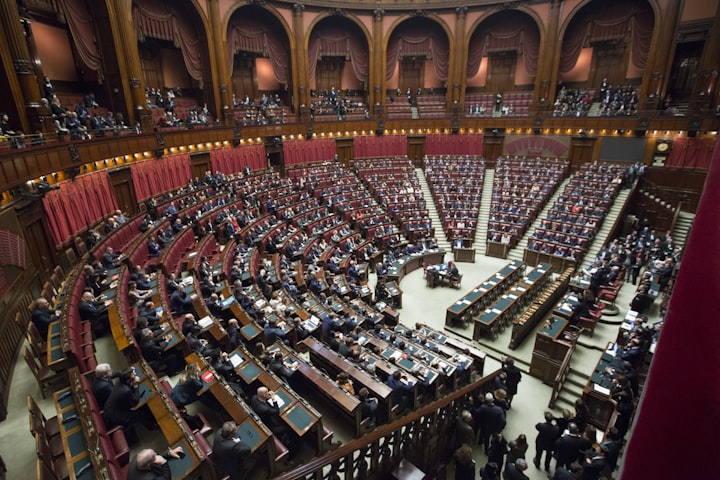Complexities of Modern Politics
Navigating the Complexities of Modern Politics: A Journey Through Ideologies and Realities

In the tumultuous landscape of modern politics, where ideologies clash and narratives intertwine, it's often challenging to discern the path forward. From the halls of power to the digital battlegrounds of social media, politics permeates every aspect of our lives, shaping policies, influencing economies, and defining societal norms. In this intricate tapestry of competing interests and divergent perspectives, understanding the nuances of political ideologies and their implications is essential for informed citizenship.
At the heart of contemporary political discourse lie ideologies, guiding principles that shape the beliefs and actions of individuals and institutions. These ideologies span a spectrum, from the traditional left-right divide to more nuanced frameworks that encompass social, economic, and cultural dimensions. At one end, conservatism advocates for limited government intervention, individual freedom, and traditional values, while progressivism promotes social justice, equality, and collective action to address systemic issues. Between these poles lie a myriad of ideologies, each offering a distinct vision for society and governance.
However, in the age of polarization and hyper-partisanship, the boundaries between ideologies have become increasingly blurred. Political tribalism, fueled by echo chambers and confirmation bias, has led to a deepening divide between competing factions, hindering constructive dialogue and meaningful collaboration. Instead of engaging in civil discourse, many individuals retreat into ideological silos, where dissent is discouraged, and alternative viewpoints are dismissed as heresy.
Moreover, the rise of populism has further complicated the political landscape, with charismatic leaders harnessing public discontent to advance their agendas. By capitalizing on fear, resentment, and identity politics, populists often appeal to emotion rather than reason, offering simplistic solutions to complex problems. This demagogic approach not only undermines democratic norms but also exacerbates societal divisions, pitting "us" against "them" in a zero-sum game of power and influence.
In the realm of policy-making, ideology intersects with pragmatism, as lawmakers grapple with the practical realities of governance. While ideological purity may be appealing in theory, the complexities of real-world challenges necessitate compromise and adaptation. In a pluralistic society, where diverse interests compete for attention and resources, consensus-building is essential for effective governance. However, the pursuit of compromise often leads to accusations of betrayal from ideological purists, further entrenching partisan divides.
Furthermore, the influence of money and special interests looms large over the political process, shaping agendas and distorting priorities. In an era of corporate influence and billionaire donors, the voices of ordinary citizens are often drowned out by the cacophony of lobbying and campaign contributions. As a result, the promise of democracy—a government of the people, by the people, for the people—becomes increasingly elusive, giving way to a plutocracy where wealth determines political power.
Amidst these challenges, the role of informed citizenship has never been more crucial. Beyond mere participation in elections, active engagement in the political process is essential for holding elected officials accountable and shaping the direction of society. By critically evaluating information, challenging assumptions, and advocating for inclusive policies, citizens can become agents of change in their communities and beyond.
Moreover, fostering empathy and understanding across ideological divides is essential for bridging the gap between competing factions. By recognizing the humanity in others and seeking common ground, we can transcend the divisive rhetoric that undermines democratic discourse. Through dialogue and cooperation, we can build a more inclusive and equitable society that reflects the diverse perspectives and aspirations of its citizens.
In conclusion, navigating the complexities of modern politics requires a nuanced understanding of ideologies, pragmatism, and the realities of governance. By transcending partisan divides, fostering empathy, and actively engaging in the political process, we can work towards a more just and sustainable future for all. In the words of Edmund Burke, "The only thing necessary for the triumph of evil is for good men to do nothing." Let us not be silent bystanders but active participants in the ongoing journey towards a more perfect union.





Comments
There are no comments for this story
Be the first to respond and start the conversation.